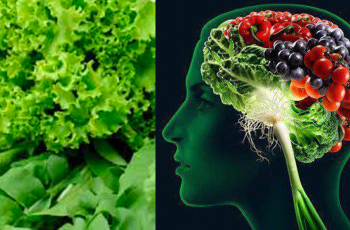Hello, I’m here to help you understand the signs of vitamin deficiency and how to recognize them. Many of us may not realize the importance of vitamins in our daily lives, but they play a crucial role in maintaining our overall health and well-being. Vitamin deficiency can lead to various symptoms that may seem subtle, but it’s essential to spot them early on to address any potential nutrient deficiencies.
From fatigue and mood swings to muscle weakness and brittle nails, the signs of vitamin deficiency can manifest in different ways. By learning to recognize these signs, you can take the necessary steps to improve your health and ensure that you’re getting the right nutrients your body needs.
Throughout this article, we will explore the signs of specific vitamin deficiencies, such as calcium, vitamin D, potassium, iron, and other essential vitamins. We’ll dive into the symptoms associated with each deficiency and provide practical tips on how to prevent and address these deficiencies in your daily life.
Unraveling Signs of Vitamin Deficiency
- Recognizing the signs of vitamin deficiency is crucial for addressing potential nutrient deficiencies.
- Common signs of vitamin deficiency include fatigue, muscle weakness, mood shifts, and more.
- Specific deficiencies, such as calcium, vitamin D, potassium, and iron, can manifest in distinct symptoms.
- A balanced diet, supplements, and regular check-ups can help prevent and address vitamin deficiencies.
- Stay tuned to explore each vitamin deficiency and learn how to maintain optimal health.
Calcium Deficiency: Numbness, Tingling Fingers, and Abnormal Heart Rhythm
When it comes to calcium deficiency, it’s important to pay attention to the signs and symptoms that may indicate your calcium levels are too low. In severe cases of calcium deficiency, you may experience numbness and tingling in your fingers, as well as abnormal heart rhythms.
However, it’s worth noting that there are usually no short-term, obvious symptoms of calcium deficiency. This makes it even more crucial to be proactive about ensuring you’re getting enough calcium in your diet.
To maintain adequate calcium levels, consider incorporating calcium-rich foods into your meals. Dairy products like milk, cheese, and yogurt are excellent sources of calcium. If you follow a plant-based diet, opt for calcium-fortified plant-based milks, such as almond or soy milk, and include dark leafy greens like kale and spinach.
Vitamin D Deficiency: Fatigue, Bone Pain, Mood Shifts, and More
Vitamin D plays a crucial role in maintaining our overall health and well-being. However, many people may experience vitamin D deficiency without even realizing it. This deficiency can manifest in various ways, with symptoms ranging from fatigue and bone pain to mood changes and muscle weakness.
One of the common signs of vitamin D deficiency is fatigue. If you often feel tired despite getting enough sleep, it could be a clue that your vitamin D levels are low. In addition, bone pain and muscle aches or weakness can also indicate a deficiency. These symptoms may be subtle at first, but if left unaddressed, they can worsen over time and impact your daily life.
Mood changes, such as depression or irritability, can also be a sign of vitamin D deficiency. Research has shown a potential link between low vitamin D levels and mood disorders. If you’re experiencing unexplained shifts in your mood, it’s worth considering whether vitamin D deficiency may be a contributing factor.
Prolonged vitamin D deficiency can have more serious consequences. It can lead to softening of the bones, a condition known as osteomalacia, which can increase the risk of fractures. Furthermore, vitamin D deficiency has been associated with a higher risk of certain cancers and autoimmune diseases.
It is essential to ensure you’re getting enough vitamin D to maintain your overall health. The primary source of vitamin D is sunlight exposure, as our skin produces it when exposed to the sun’s ultraviolet B (UVB) rays. However, this can be challenging, especially for those living in areas with limited sun exposure or during the winter months.
Fortunately, there are other ways to obtain vitamin D. Consuming foods fortified with vitamin D, such as fortified milk and fatty fish like salmon, can help supplement your intake. Additionally, vitamin D supplements may be necessary for individuals who struggle to meet their daily requirements through diet and sunlight exposure alone.

By addressing vitamin D deficiency, you can improve your energy levels, alleviate bone pain, and stabilize your mood. If you experience persistent fatigue, bone pain, mood changes, or muscle weakness, it’s important to consult with a healthcare professional for a proper evaluation and guidance on how to optimize your vitamin D levels.
Potassium Deficiency: Muscle Weakness, Constipation, Irregular Heart Rhythm, and More
Potassium is an essential mineral that plays a crucial role in our body’s functioning. When we don’t get enough potassium, it can lead to various symptoms and health issues. Recognizing the signs of potassium deficiency is important for maintaining optimal health and well-being.
One of the common signs of potassium deficiency is muscle weakness. When our bodies lack potassium, our muscles can become weak and fatigued, making it difficult to perform everyday activities. Additionally, potassium deficiency can cause muscle twitches or cramps, further impairing muscle function.
Another symptom of potassium deficiency is constipation. Potassium helps regulate the movement of muscles, including those in our digestive system. Without sufficient potassium, our intestinal muscles may not contract properly, leading to constipation and discomfort.
Irregular heart rhythm is also a significant symptom of potassium deficiency. Potassium helps maintain the electrical signals that regulate our heart’s rhythm. When our potassium levels are low, it can disrupt this important balance, resulting in abnormal heart rhythms or palpitations.
Other symptoms of potassium deficiency may include tingling and numbness in the extremities, such as hands and feet. This sensation, known as paresthesia, can be an indication of nerve dysfunction due to low potassium levels.
To prevent potassium deficiency and maintain a healthy blood pressure, it’s crucial to include potassium-rich foods in our diet. Some excellent sources of potassium include bananas, acorn squash, lentils, and kidney beans. These foods can help replenish potassium levels and support proper muscle function.
Iron Deficiency: Fatigue, Shortness of Breath, Cold Hands and Feet, Brittle Nails, and More
Iron deficiency can have significant effects on your overall health and well-being. It is essential to recognize the signs of iron deficiency and take appropriate measures to address them. If left untreated, iron deficiency can lead to various symptoms and health complications.
Signs of Iron Deficiency
- Fatigue: Feeling tired and lacking energy is one of the most common signs of iron deficiency.
- Shortness of Breath: Iron helps transport oxygen throughout the body. When iron levels are low, there may not be enough oxygen circulating, leading to shortness of breath.
- Cold Hands and Feet: Poor blood circulation due to iron deficiency can cause extremities like hands and feet to feel cold.
- Brittle Nails: Insufficient iron can result in brittle, weak nails that are prone to breakage.
In severe cases, iron deficiency can also lead to unusual cravings for non-food items like dirt or ice, a condition known as pica. If you experience any of these symptoms, it’s important to consult with a healthcare professional for proper diagnosis and treatment.
To prevent and address iron deficiency, it’s crucial to consume iron-rich foods. Some examples of iron-rich foods include:
- Iron-fortified cereals
- Beef
- Oysters
- Legumes
However, it’s worth noting that the recommended daily intake of iron differs for men and women. Women, especially during their reproductive years, require higher amounts of iron due to menstrual blood loss. It’s essential to be aware of your specific iron needs and incorporate iron-rich foods accordingly.

Remember, iron deficiency can have serious implications for your health, but it’s a condition that can be managed with proper nutrition and medical guidance.
Other Vitamin Deficiencies: Numbness, Fatigue, Tongue and Skin Changes, and More
Vitamin deficiencies can have varying effects on our overall health and well-being. In addition to the previously discussed deficiencies, there are several other important vitamins that play a crucial role in our bodies. Deficiencies in these vitamins can result in a range of symptoms and health issues.
Vitamin B12 Deficiency
Vitamin B12 is essential for nerve function and the production of red blood cells. Signs of vitamin B12 deficiency may include:
- Numbness or tingling in the hands and feet
- Weakness or fatigue
- Poor balance and coordination
- Mood changes, such as depression
- Pale or yellowish skin
Folate Deficiency
Folate, also known as vitamin B9, is important for cell growth and development. Symptoms of folate deficiency can include:
- Extreme fatigue
- Mouth sores
- Tongue swelling
- Poor digestion
- Slow growth in children
Vitamin A Deficiency
Vitamin A is crucial for maintaining healthy vision, skin, and immune function. Signs of vitamin A deficiency may include:
- Night blindness or poor night vision
- Dry, rough, or scaly skin
- Increased susceptibility to infections
- Poor wound healing
- Dull hair and brittle nails
Magnesium Deficiency
Magnesium is involved in hundreds of bodily processes and is essential for proper muscle and nerve function. Common signs of magnesium deficiency include:
- Muscle cramps or weakness
- Anxiety or depression
- Insomnia or difficulty sleeping
- Irregular heartbeat
- Headaches or migraines
Vitamin C Deficiency
Vitamin C is known for its role in supporting the immune system and promoting collagen production. Symptoms of vitamin C deficiency can include:
- Fatigue and weakness
- Bleeding gums
- Poor wound healing
- Joint and muscle pain
- Easy bruising
To prevent and address these signs of vitamin deficiency, it’s crucial to maintain a well-balanced diet that includes a variety of nutrient-rich foods. However, in some cases, dietary changes alone may not be sufficient, and supplements may be recommended. Regular blood tests can help identify nutrient deficiencies and guide appropriate treatment.
It’s important to prioritize our health by being aware of the signs of vitamin deficiency and taking steps to address them. By ensuring we obtain adequate nutrition, we can support our overall well-being and reduce the risk of vitamin deficiency diseases.
Conclusion
Vitamin deficiencies can have a significant impact on our health and well-being, leading to various symptoms and health conditions. It’s essential to recognize the signs of vitamin deficiency and take necessary steps to address them.
One of the main causes of vitamin deficiency is an inadequate intake of essential vitamins and minerals through our diet. Consuming a balanced diet rich in vitamins and minerals is crucial for preventing and treating vitamin deficiencies. Including a variety of fruits, vegetables, whole grains, lean proteins, and dairy products in our daily meals can help ensure we are getting the necessary nutrients.
However, in some cases, dietary adjustments alone may not be enough. For individuals with specific dietary restrictions or those who have difficulty absorbing certain vitamins, supplements may be necessary. It is important to consult with a healthcare professional or a registered dietitian to determine the appropriate dosage and type of supplements.
In addition to proper nutrition, regular check-ups and blood tests are essential for monitoring nutrient levels and detecting any deficiencies early on. This allows for prompt treatment and prevention of potential health complications and future signs of vitamin deficiency. By taking these proactive steps, we can maintain optimal health and well-being and prevent the negative effects of vitamin deficiencies.
FAQ
What are some common signs of vitamin deficiency in adults?
Common signs of vitamin deficiency in adults can include numbness and tingling fingers, abnormal heart rhythms, fatigue, bone pain, muscle weakness, constipation, and changes in the tongue or skin.
How can I recognize the signs of calcium deficiency?
Signs of calcium deficiency may include numbness and tingling fingers, as well as abnormal heart rhythms. However, there are usually no short-term, obvious symptoms of calcium deficiency.
What are the symptoms of vitamin D deficiency?
Symptoms of vitamin D deficiency can include fatigue, bone pain, mood changes, and muscle aches or weakness. Prolonged deficiency may lead to softening of the bones and an increased risk of certain cancers and autoimmune diseases.
What are the signs of potassium deficiency?
Signs of potassium deficiency can include muscle weakness, twitches or cramps, constipation, tingling and numbness, and abnormal heart rhythms.
What are some symptoms of iron deficiency?
Symptoms of iron deficiency can include fatigue, shortness of breath, cold hands and feet, brittle nails, and cravings for non-food items like dirt.
What are the signs of other vitamin deficiencies?
Other vitamin deficiencies, such as B12, folate, vitamin A, magnesium, and vitamin C, can cause various symptoms including numbness, fatigue, tongue and skin changes, poor night vision, and muscle pain.
How can I prevent vitamin deficiencies?
To prevent vitamin deficiencies, it’s important to have a balanced, nutrient-rich diet that includes a variety of fruits, vegetables, whole grains, lean proteins, and dairy or plant-based alternatives. Taking supplements and getting regular check-ups can also help monitor nutrient levels.




